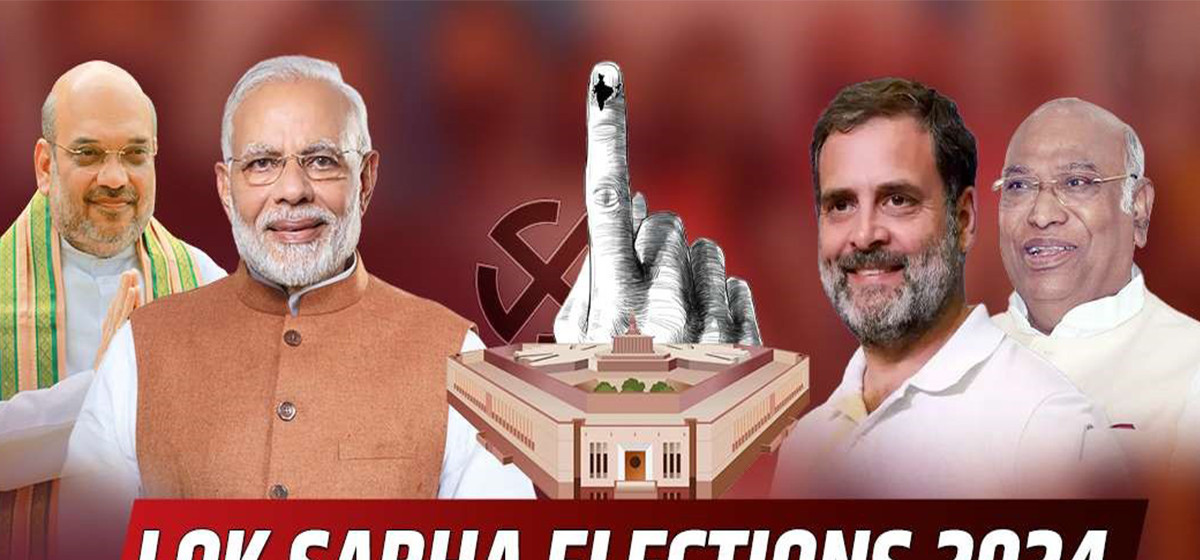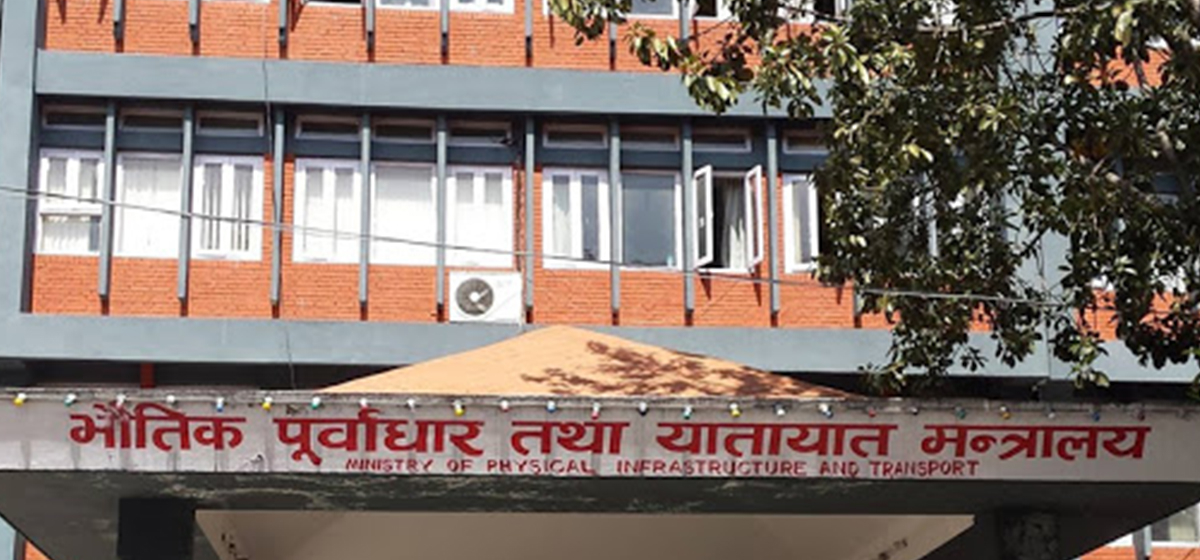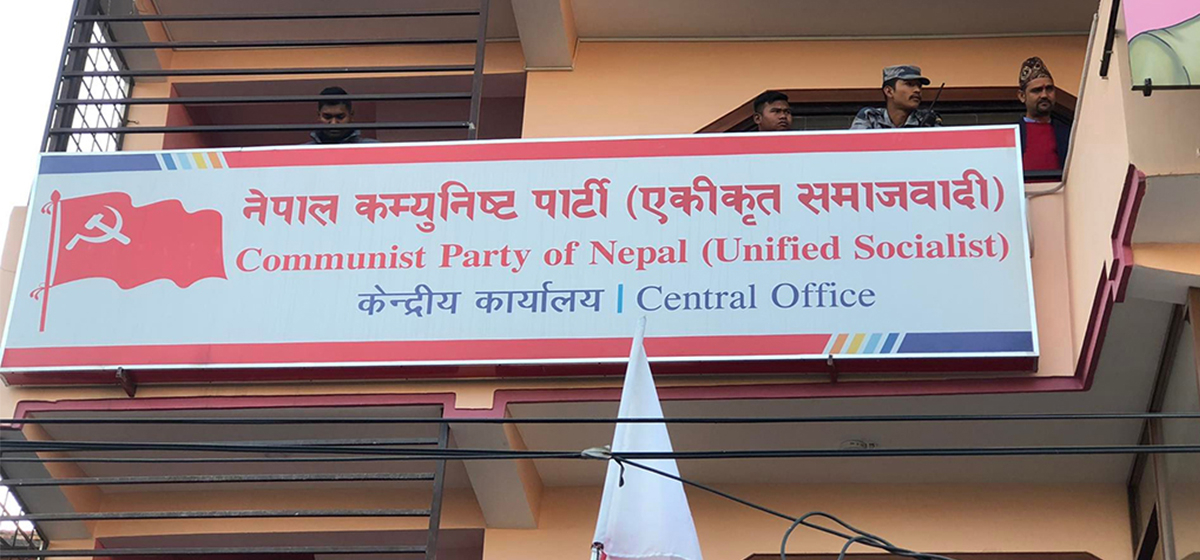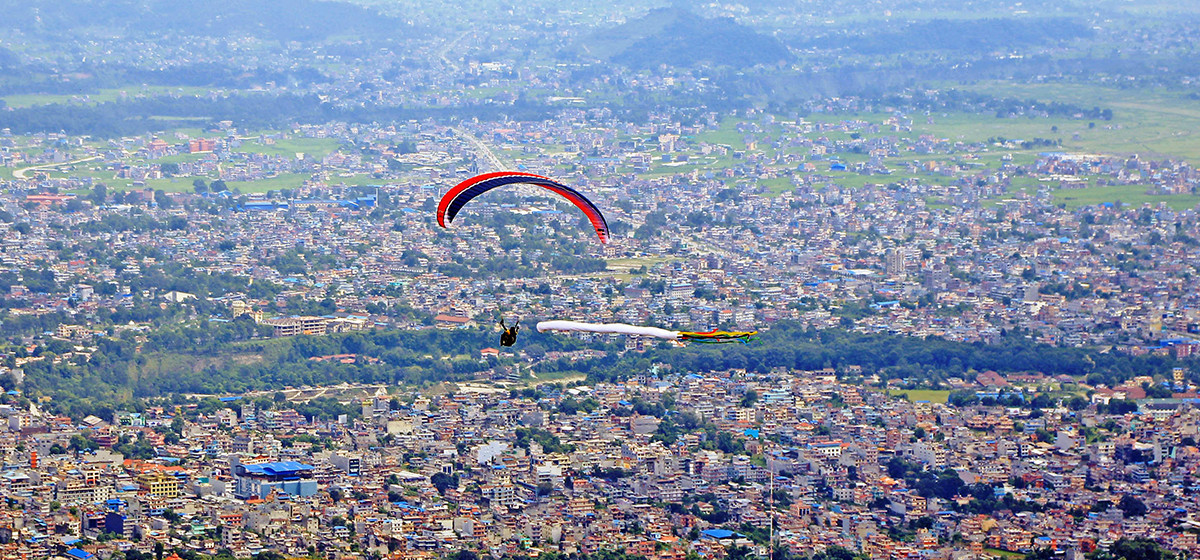
OR
Rich pickings
Published On: October 9, 2017 12:59 AM NPT
Election candidate selection
Political parties are in the process of finalizing the names of the candidates contesting provincial and federal elections, which are to be held in two phases on November 26 and December 7. Expectedly, with the number of claimants sky-high, major parties are having a tough time. But certain trends are becoming clear. The first trend is of top political leaders contesting direct election from more than one constituency. For instance, CPN-UML Chairman KP Sharma Oli is contesting federal election from two constituencies, while another top UML leader, Madhav Kumar Nepal, is contesting from three different constituencies. When Nepali Congress and CPN (Maoist Center) make their candidate lists public, we are likely to see the same trend, with the likes of Sher Bahadur Deuba and Pushpa Kamal Dahal getting to contest through multiple constituencies. This is not a healthy sign. Instead of hoarding all the important constituencies for themselves, these aging leaders should have given preference to younger candidates, and the candidates who have made valuable contributions to their parties. But supposedly these leaders are so important that they must somehow, anyhow, be accommodated in national parliament. In the process, they saddle the state with the added burden of holding unnecessary by-elections when someone wins more than one constituency.
If the past is any guide, the Proportional Representation lists of political parties are likely to be filled with the names of corrupt politicians and businessmen who are ready to ‘invest’ any sum to secure a ticket. Thus the corruption of Nepali democracy starts from the time of nomination of election candidates. So much has changed in the past decade or so. In this time Nepal was able to do away with the autocratic monarchy, a federal democratic republic was proclaimed, and the Constituent Assembly promulgated a new constitution. There have also been big advances in securing the rights of women, minorities and marginalized communities. The new electoral laws guarantee a respectable representation of these communities in national and provincial legislatures. But some things sadly remain the same. Political parties continue to be seen as among the most corrupt state entities, amenable to various interest groups and lobbies. The image of the bureaucracy is no better. Thanks to its steady politicization, even the judiciary is compromised. But this systemic rot starts in the parliament, the supreme, sovereign law-making body.
Save for a handful of exceptions, most of our MPs owe their rise to the power of money and muscle. This is why, upon their election to the parliament, they are forced to do the bidding of their benefactors: rich businessmen, unscrupulous contractors and various cartels and syndicates. Seldom do they have the time to serve their constituencies that elected them in the first place. Our political parties still have this tendency to act as if they are a law unto themselves, immune from any check and balance. It is incumbent upon established democratic forces like Nepali Congress and CPN-UML, in particular, to promote meritocracy in their ranks so that only those with record of exemplary public service and of high moral standing get tickets. Such a popular culture of meritocracy will also make the parties practicing it electorally strong.
You May Like This

Rain shocks: On the monsoon in 2024
The India Meteorological Department (IMD) has forecast a bountiful monsoon. Rainfall from June-September is expected to be 6% more than... Read More...

Nagdhunga-Sisnekhola tunnel breakthrough: Beginning of a new era in Nepal’s development endeavors
The breakthrough of the Nagdhunga-Sisnekhola tunnel marks a significant leap forward in Nepal's development. For Nepalis who have only traveled... Read More...

Strengthen oversight to ensure good governance practices in banking sector
The integrity of financial institutions is critically important for the economic stability of any country. In Nepal, where commercial banks... Read More...





Just In
- Taylor Swift releases ‘The Tortured Poets Department’
- India starts voting in the world’s largest election as Modi seeks a third term as prime minister
- EC seeks cooperation for free and fair by-election
- Bus carrying wedding procession attendees meets with accident in Sindhupalchowk claiming three live
- CPN (Unified Socialist) to hold its Central Committee meeting on May 10-11
- Over 16,000 paragliding flights conducted in one year in Pokhara
- MoPIT prepares draft of National Road Safety Act, proposes rescue within an hour of an accident
- Light rainfall likely in hilly areas of Koshi, Bagmati, Gandaki and Karnali provinces














Leave A Comment